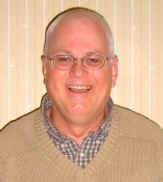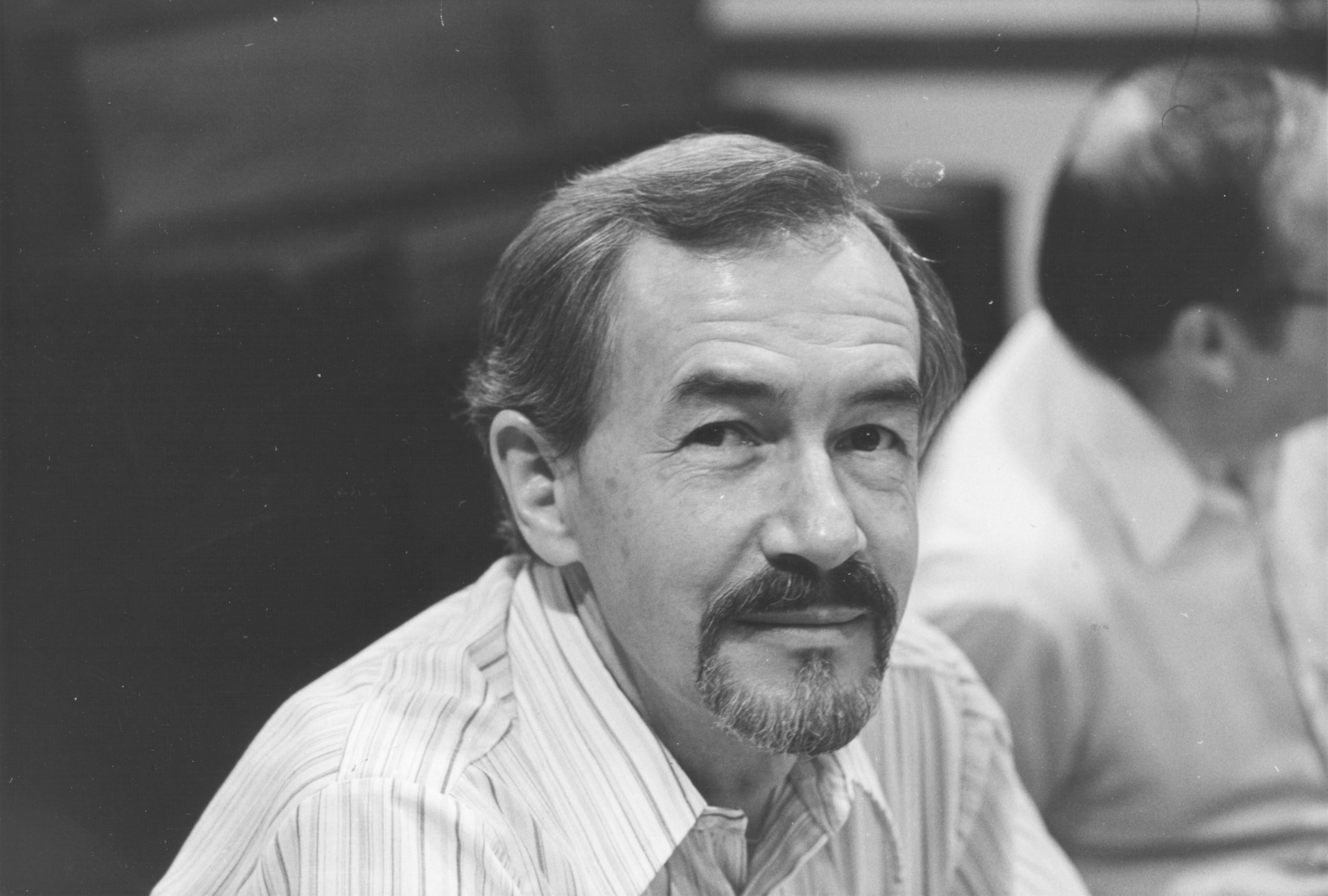
Rueben Job a spiritual leader for many Dakotas clergy
Story by Rev. R. Duane Coates, Southern Hills UMC, Sioux Falls, SD
Rueben Job was a rare example of the sainthood of all baptized Christians, many say. So rare, in fact, that if United Methodists venerated their own saints, several Dakotas clergy would petition for his canonization.

Photo: Reverend Tim Eberhart. File photo.
Rev. Eberhart said, “All baptized members are saints … but there are those whose hearts are truly filled with the Holy Spirit. Reuben was clearly tangibly a living saint.”
In fact, Eberhart equated Job’s rare radiance of Christ to that of Pope John Paul II. He said Job visibly, physically glowed with the love of God with his countenance, his person, even his skin. Bishop Bruce Ough, of the Dakotas-Minnesota Episcopal Area, who worked with Job for many years, both in the Dakotas and Iowa, agreed, saying Job became Christ for many people.
Ough said that Job’s legacy will be one of a “person who served as spiritual guide and mentor for at least two generations of lay servants and clergy of The United Methodist Church.”
That includes Dakotas clergy from their 20s to their 80s. For instance, Pastor Rob Salmonson, a 
Photo: Reverend Robbie Salmonson. File photo.
Salmonson recounted the story of how he was appointed to a student charge in St. Joseph, Mo., the summer before he began classes at St. Paul School of Theology. He said he had no idea what to do as a student pastor, but turned to “Three Simple Rules” for guidance.
“As I wrote sermons, as I planned and attended meetings, as I pastored to these people, I kept asking myself: ‘is this doing anyone harm, is this going to do good, will this help me and others love God and their neighbor?’”
Job’s former college roommate from North Dakota, the Rev. Jim Stein, a retired Dakotas elder, said this kind of spirituality is a good representation of the pietism of the former Evangelical-United Brethren Church (EUB) in which both Stein and Job were raised. The EUB church merged with the Methodist Church in 1968 to form our current denomination.
With “Three Simple Rules,” Job defined Wesley’s theology for the church, said the Rev. Dar Berkenpas, who had a close connection with Job when, as a seminarian, she interned at the Upper Room where Job was world editor. She said Job returned the church to the “holy wisdom of Christian spirituality” in which United Methodism is rooted.
 The Rev. Doug Anderson agreed, adding that wasn’t as true of the modern Methodist movement prior to the book’s publication. For 13 years Anderson, a retired Indiana elder, led the Dakota Wesleyan University-based Reuben Job Center for Leadership Development.
The Rev. Doug Anderson agreed, adding that wasn’t as true of the modern Methodist movement prior to the book’s publication. For 13 years Anderson, a retired Indiana elder, led the Dakota Wesleyan University-based Reuben Job Center for Leadership Development.
Photo: Reverend Dough Anderson. File photo.
Stein attributes this spirituality to the ideas of 17th century German Lutheran pietist theologian Philipp Spener. In his five decades of seminary teaching, Stein emphasized pietism’s deep influence on the former EUB church. Some of John Wesley’s influences can also be traced to pietism.
Job had a great capacity for practicing that kind of Christian love, Ough said. Illustrating that point, Stein recounted a story from the Dakotas in which Ough, then a Dakotas pastor, demonstrated his understanding of Job as the epitome of the pietist emphasis on preaching to produce faith and its fruits within the listeners. As the story goes, Job showed up to preach for a worship service in the Dakotas and someone asked him if he had his sermon. Ough, not yet a bishop, overheard this comment and interjected, “He doesn’t need a sermon, he is the sermon (producing faith and its fruits within the life of the listeners).”
These are the kinds of stories that Eberhart remembered hearing as the son of two Dakotas conference elders with EUB roots. Not only did Eberhart grow up learning to revere Job, but as a theological student, Eberhart, like Berkenpas and many others, was influenced directly by Job. He remembers when he and his wife, the Rev. Becky Eberhart, also a Dakotas elder on staff at Garrett-Evangelical, were guests in the Jobs' home. There, they received not only warm hospitality, but also spiritual direction. Berkenpas once stayed a week at the Jobs' home on a solo spiritual retreat after she had been ordained a Dakotas elder.
Photo: Reverend Dar Berkenpas. File photo.
That close connection and availability for spiritual direction was confirmed by others, but wasn’t exclusive to Dakotans studying at Vanderbilt Divinity School. For instance, Anderson also benefitted from that one-on-one personal and spiritual attention. He said that, for him, epitomizes Job.
Many Dakotas clergy, including Eberhart, Ough and Berkenpas credit Job with having the single biggest impact on their ministry and discipleship. But perhaps none had a longer close connection with Job than Stein, who shared a room with him during Stein’s last two years at Westmar College in LeMars, Iowa. Stein said he and Job, without a high school education, entered Westmar in the fall of 1950. They remained in close communion ever since.
Ough, who shares with Job the denomination’s historical distinction as the first bishops produced in the Dakotas, said the Dakota spiritual geography no doubt deeply shaped Job’s spirituality.
Illustrating that point, the Rev. Rick Pittenger, pastor of Vermillion UMC, remembers a story Job shared at a Dakotas event several years ago. Pittenger said that Job told of how desperate the family was for moisture during the Dust Bowl days of the 1930s. So, his father, who also had a heart condition, would climb the antiquated windmill on their North Dakota farm and point the blades toward the slightest of life-giving breezes. Pittenger said, “in his typically gentle way, Job related that story to our spiritual lives turning to the gentle breezes of God.”
Photo: Reverend Rick Pittenge r. File photo.
r. File photo.
Ough, who will preach Job’s memorial service sermon, told readers of his Jan. 6, 2014 web log that when he agreed to preach Job’s memorial service, “[I] find myself in denial that his death, like yours and mine, is inevitable.”
Photo: Bishop Rueben Job at the 1981 Dakotas Conference Session. File photo.
When death did come for Job, Ough stated: “He is a true model and disciple of the Wesleyan tradition. Bishop Job exemplified the Dakota spirit of a humble man of eloquent words and unceasing prayer. He lived out his call every day of his life with passion.”
Bishop Ough will preach at the memorial service for Job at Belmont United Methodist Church in Nashville, Tennessee January 18, 2015 at 2:00 p.m.

